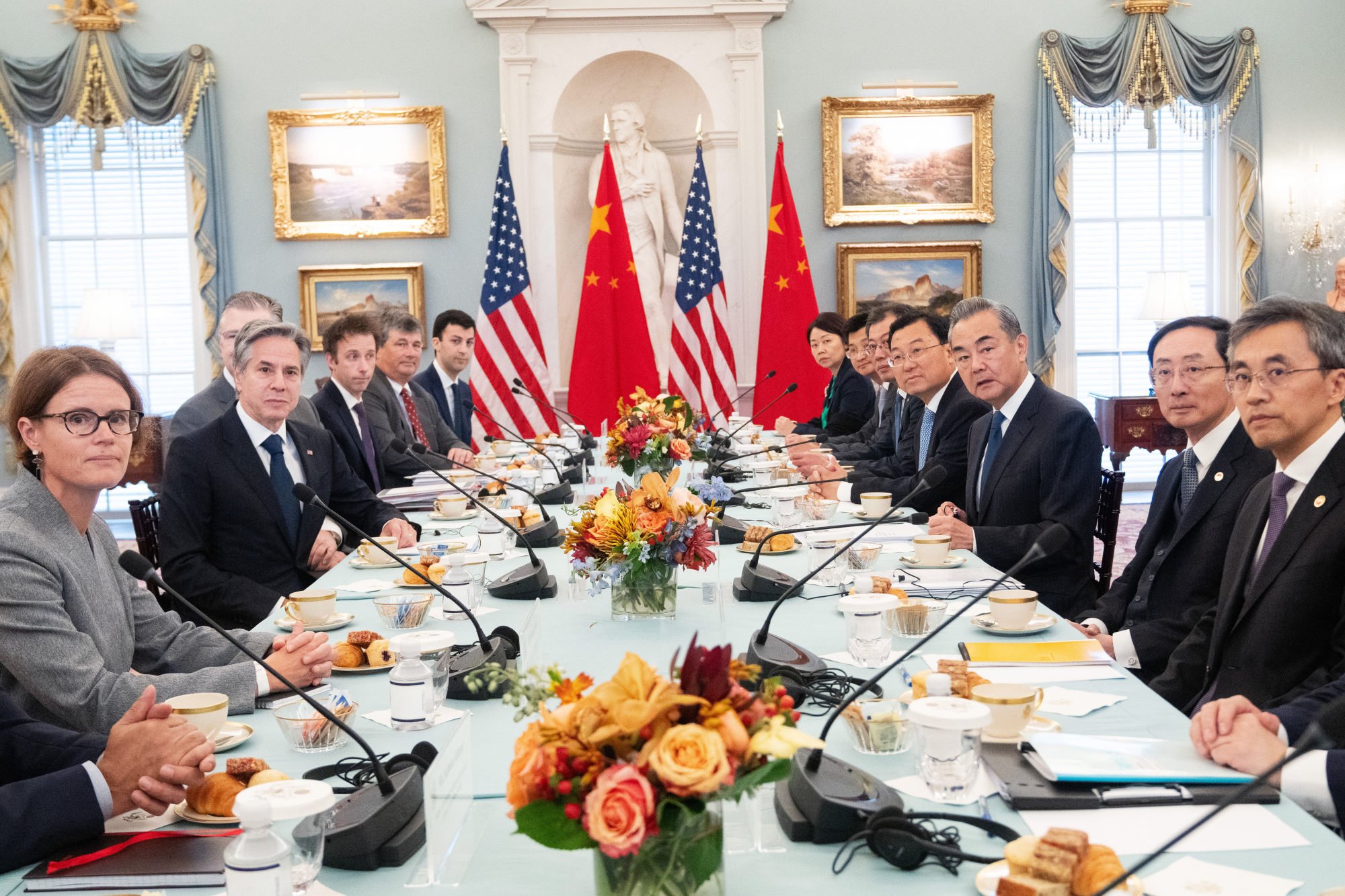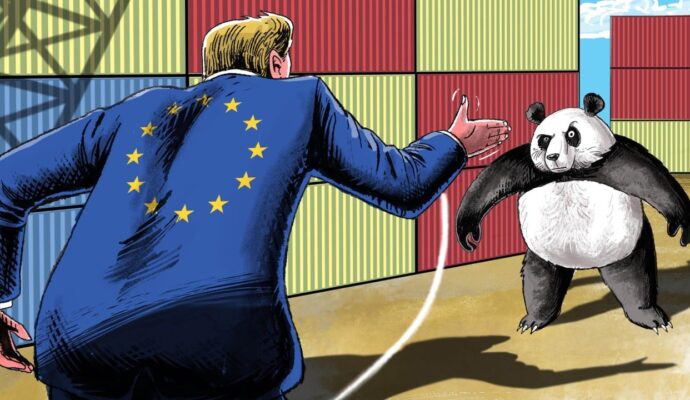While calling for stable and healthy ties with the US, Wang was cautious about whether talks between the leaders at the Asia-Pacific Economic Cooperation (Apec) summit next month in San Francisco would go ahead.
He said the path towards a meeting would not be “smooth sailing” or rely on “autonomous driving”, according to China’s foreign ministry.

“The atmosphere [between China and the US] has improved significantly in the past few months, but in terms of [US] behaviour, it is still hostile and the confrontation is still overwhelming,” he said.
“The United States still needs some clearer expressions. When it comes to security issues involving China, from the South China Sea to the Taiwan Strait, the United States must not be provocative … in terms of behaviour, it needs to be restrained,” Lu said.
For example, Washington must take substantive action to ameliorate the threat its “freedom of navigation” operations posed to China’s security, Lu said, referring to US military exercises in disputed airspace and waters claimed by Beijing.
China-US ties must return to ‘healthy, stable’ state soon: Foreign Minister Wang Yi
China-US ties must return to ‘healthy, stable’ state soon: Foreign Minister Wang Yi
Blinken raised concerns about China’s “unfair treatment” towards US businesses in the country, “dangerous and unlawful actions” targeting Philippine resupply missions to the Second Thomas Shoal, a reef claimed by both Beijing and Manila, and broader concerns about China’s actions in the South and East China seas.
Meanwhile, Washington’s recent restrictions targeting the Chinese hi-tech sector have been met with swift retaliation. In response to US export bans on advanced technologies, Beijing has limited American semiconductor giant Micron’s sales in China and restricting exports of two key materials for chip-making.
Wang’s meetings with US officials and representatives covered a wide range of topics, including the conflicts in Gaza and Ukraine and the Korean peninsula. Wang also spoke about China’s economic prospects, investment environment and people-to-people communications.
During the top diplomat’s trip to Washington, US transport authorities announced an agreement to increase direct flights between the two countries from 24 to 70 from next month.
“Foreign Minister Wang Yi’s visit could be said to have achieved obvious results despite relatively short statements from both sides … so the next step we can also look forward to is exchanges between the two militaries,” Lu said.
Hopes high for Xi-Biden summit as recent US-China diplomatic efforts bear fruit
Hopes high for Xi-Biden summit as recent US-China diplomatic efforts bear fruit
Josef Gregory Mahoney, an international relations professor at East China Normal University, said both China and the US had incentives to make the Apec meeting happen, but there was “no guarantee” as China had taken a “wait-and-see” approach in the face of “anti-China” policies from the US.
“Both sides need to avoid as much as possible new provocations against each other before Apec takes place. The problem is that the US has a whole raft of anti-China policies that it already has in place and no doubt there are more to come. So the question is whether the US can pause this onslaught long enough for a meeting to be finalised,” Mahoney said.
“Biden understands sequencing quite well, and it might be the case that he wants to hold new provocations for the new year anyway in order to have greater impact on his re-election campaign.”
Mahoney also questioned what an Apec meeting was supposed to achieve as Biden is expected to talk tough on China during his re-election bid.
The divided US Congress has become more united on China policy, with bills related to hi-tech restrictions and support for Taiwan through trade and weapons winning bipartisan support.
Mahoney said a bit of “grandstanding” was to be expected during a campaign season with a “polarised electorate that on the whole only agrees on one thing, and that’s taking a tougher stand against China”.
“It’s understood that Biden will pay for this meeting politically by talking if not acting tough, but no doubt there are limits what the Chinese side is willing to endure before and during a meeting, assuming one takes place.”
Additional reporting by Alyssa Chen


